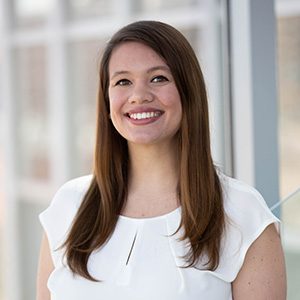Metropolitan State University of Denver is always full of opportunities to immerse yourself in professional development as a teacher or a leader.
The TRIO Upward Bound program is seeking proposals from faculty and staff members to develop and teach in the summer program.
Additionally, employees can explore the various programs through the Center for Teaching, Learning and Design. Applications to participate in Association of Colleges and University Educators (ACUE) courses are open through May 24, and the CTLD is also looking for Faculty Learning Community facilitators. There are also stipend opportunities available for Scholarship of Teaching and Learning Faculty Learning Committee facilitators and employees who participate in the Peer Associates Program.
Submit TRIO Upward Bound proposals before May 12
Classes must connect to at least one of the following content areas:
- Math
- Literature
- Lab science
- Foreign language
- Robotics/engineering
- Civics/social responsibility
- Financial literacy
- Art (including music and theatre)
TRIO values approaches to teaching that are creative and hands-on and include culturally responsive content and instruction. Priority will be given to sessions that enhance critical-thinking skills regarding local, national or global issues and include a variety of learning styles that are student-centered. Faculty, staff and external community members can earn up to $4,000 for teaching two classes per week.
ACUE applications open until May 24
Association of College and University Educators courses prepare and support faculty members to teach with research-based best practices, improvement in student achievement and closure of equity gaps.
This semester’s courses are:
- Promoting Active Learning (Sept. 9-Nov 3)
- Fostering a Culture of Belonging (Sept. 9-Nov 10)
- Additional non-certification course open to faculty and staff members for this course.
Employees who complete the free ACUE courses will earn a nationally recognized Certificate in Effective College Instruction endorsed by the American Council of Education.
The average time commitment to complete an ACUE course is two to three hours per week over six to seven weeks.
Facilitate an upcoming scholarship project
The Scholarship of Teaching and Learning is a growing field of scholarship in higher education. SoTL fosters a scholarly approach to teaching, engages faculty in reflective practice about their work and provides an avenue for a peer-reviewed source of evidence to reward teaching.
Like other CTLD FLCs, three to five faculty/staff members work together to explore a common teaching issue in depth and develop a collaborative scholarly project (publication, manuscript, conference presentation, etc.) under the guidance of the FLC facilitator. Facilitators will earn a $1,600 stipend for taking leadership roles including planning and organizing meetings, maintaining the group’s focus and other various responsibilities.
The SoTL is searching for faculty facilitators to lead a scholarship project around:
- Crafting assessments in the age of AI.
- Setting appropriate and equitable boundaries with students.
- Student engagement in asynchronous courses.
- Or additional ideas proposed by faculty members.
Join the 2024 Peer Associates Program
The goal of the CTLD Peer Associates Program is to develop additional expertise across campus for teaching-related ideas and support and to provide multiple overlapping resources and channels that instructors can call on as needed.
Peer associates meet approximately every three weeks during one semester as a small cross-disciplinary learning community. The time commitment is roughly equivalent to a 1-credit course for one semester in which Peer Associates receive a stipend.
Facilitate a Faculty/Staff Learning Community
A Faculty/Staff Learning Community is a small group of faculty and staff members working together to increase their knowledge and/or skills on a topic of mutual interest.
An FLC provides the structure and support for this group to discuss, share and encourage one another to reach their full professional potential. In addition to shared learning, FLC members work on personal projects that put into practice what they are learning. Finally, the community is expected to share its knowledge and accomplishments with the wider University community.
Employees who have a teaching-related issue or idea are encouraged to submit a facilitator application to facilitate a fall 2024 Faculty/Staff Learning Community.


